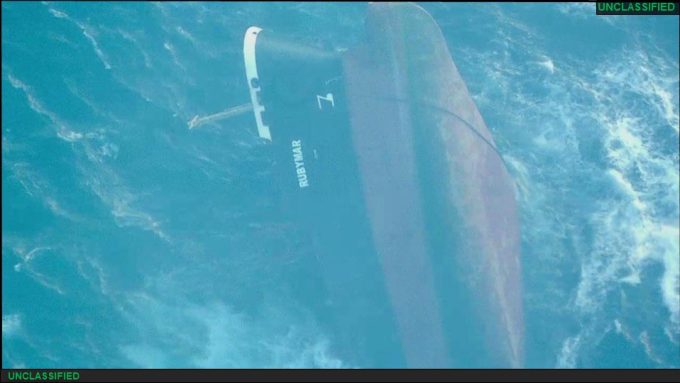Turkish carriers launch VSA with joint service wooing Red Sea volumes
Turkish container carriers Turkon Line and Arkas Line seem to have scooped up significant India-Mediterranean ...

General-cargo ship Rubymar, abandoned in the Red Sea with its cargo of fertiliser, finally went under on Saturday after a fortnight of gradually sinking, becoming the Israel-Palestine conflict’s first vessel casualty.
The vessel was hit by a Yemeni anti-ship missile on 18 February, after it was linked by the Houthis to a company headquartered in the UK, and subsequently described as “British” in all their communications.
Gradually taking on water, the vessel was refused entry to ports in the UAE, Africa, Saudi ...
Outlook for container shipping 'more uncertain now than at the onset of Covid'
Transpac container service closures mount
Zim ordered to pay Samsung $3.7m for 'wrongful' D&D charges
Flexport lawsuit an 'undifferentiated mass of gibberish', claims Freightmate
Shippers warned: don't under-value US exports to avoid tariffs – 'CBP will catch you'
Cancelled voyages take the sting out of spot rate declines this week
New Houthi warning to shipping as rebel group targets specific companies
Blanked sailings in response to falling demand 'just a stop-gap solution'


Comment on this article